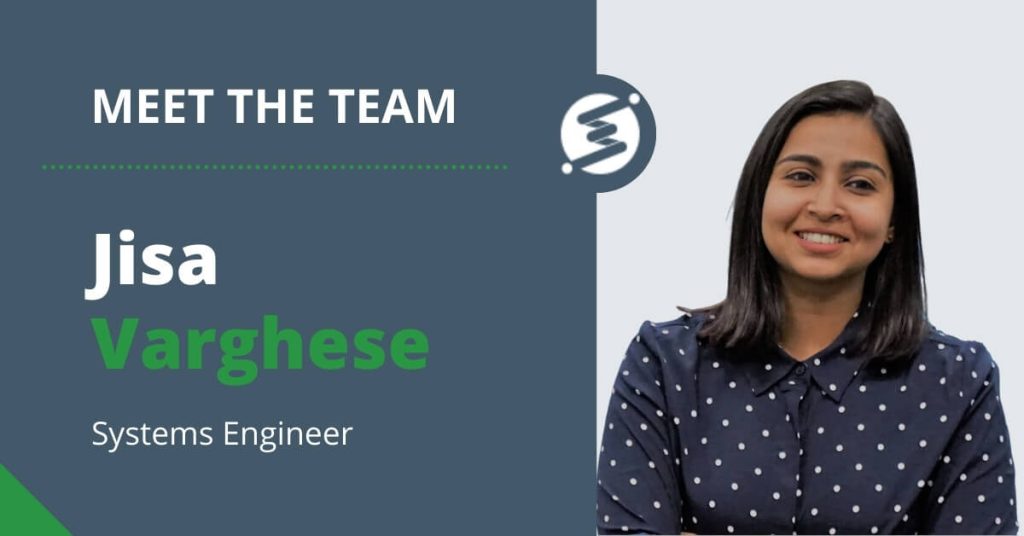1. Describe your job as if you were explaining it to a five-year-old.
I write programs or sets of instructions to create applications used in medicine-making factories or hospitals.
2. What types of projects are you working on at the moment?
The current project I am working on involves creating a development environment to configure test plans to test the flow charts executed in controllers. These are mainly used to test production lines to check various scenarios and confirm the expected behaviour is met.
3. How did you get into the industry?
I graduated as a computer science engineer from college and started working with Siemens right after. During that time, I learned a lot about industrial automation, a new domain for me. I loved working with hardware, and I was able to attend hackathons that helped expand my knowledge, but I’ve always wanted to work in life sciences since childhood.
I moved to Ireland for my Master’s degree. I then found an opportunity to work with SL Controls where I could make use of my knowledge gained from Siemens and achieve my dream of working in the life sciences industry. I like to think my current role in SL Controls is a perfect example of a technical career in life sciences.
4. What is your proudest moment (work life or personal life)?
Two of them are when I participated in a hackathon when working at Siemens, and also when I single-handedly deployed a project for a large life sciences customer while working with SL Controls.
While the Hackathon was a new experience of meeting like-minded people and trying to create something novel, the SL Controls project gave me the confidence to create software and make decisions without being part of a team. Having always worked as part of a team, the project gave me ample opportunities to research and take ownership from requirement gathering to deployment.
5. What’s the best advice you could give to someone thinking of coming into this industry?
Choosing a career in tech can be a bit overwhelming if you are not sure of which way to go. Do your research on each of the roles and choose the one that aligns with your goals rather than just following the bandwagon.
Constant learning and adaptability are two important skills to develop in this field. It is also important to expand your skillset when it comes to programming. To be a software engineer in this industry, it is beneficial to be confident in any of the legacy programming languages like C#, and Java, as well as SQL. It will be a lot easier to expand to Python, R, Scala, and others later if necessary.
Another important key is to stay up to date by reading technical blogs, participating in technical conversations, and trying new projects on your own, even if they are completely new to you.
6. Outside of work, what are you most passionate about?
I have a wide variety of hobbies including playing badminton, reading, and taking up DIY home décor projects. I have also taken up a new mission to finish reading a minimum of one book per month. Fingers crossed!
7. What’s the best thing about working for life sciences customers (pharma, MedTech, etc)?
As previously discussed, what I find most rewarding in working with life sciences clients is the seamless integration of technology and pharma. It is interesting to develop new tools and applications as this field is constantly evolving and has lots of potential. It is also exciting as there are different varieties of technologies I get to work with. The field also provides me with opportunities to strengthen my R&D skills and achieve steady career growth.
8. What is the best thing about being on the SL Controls team?
Being part of a team of highly experienced members is very helpful. Discussions related to features and development issues always offer something new to learn. Another added advantage is resolving issues together and discovering different ways of solving the same issue.





